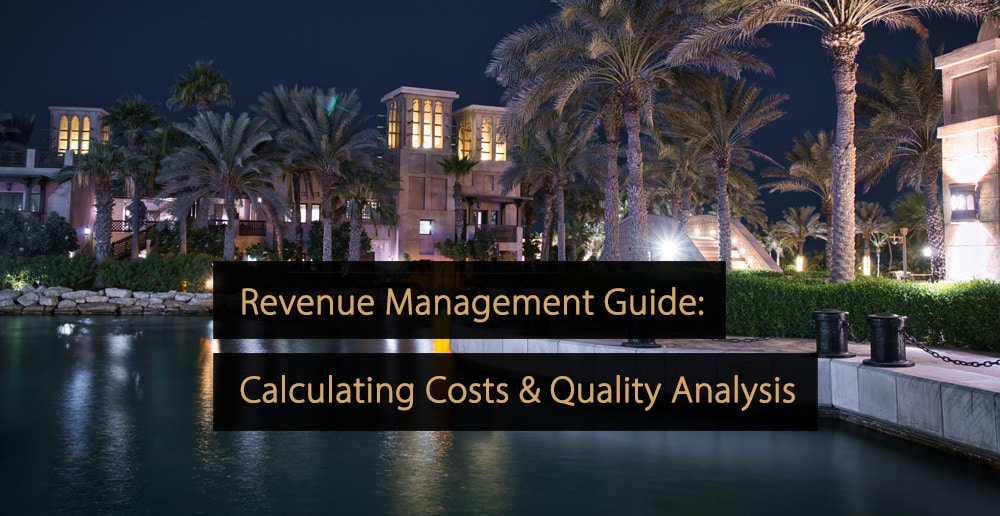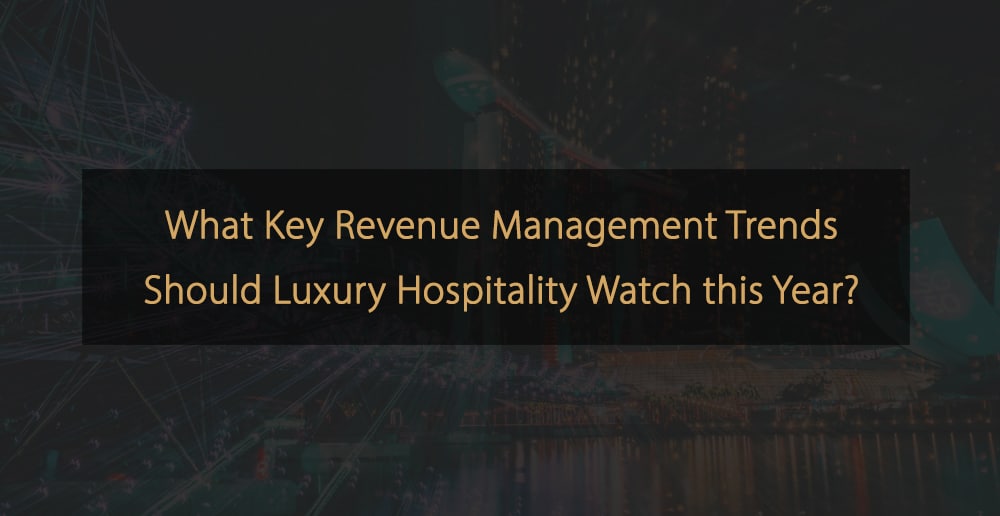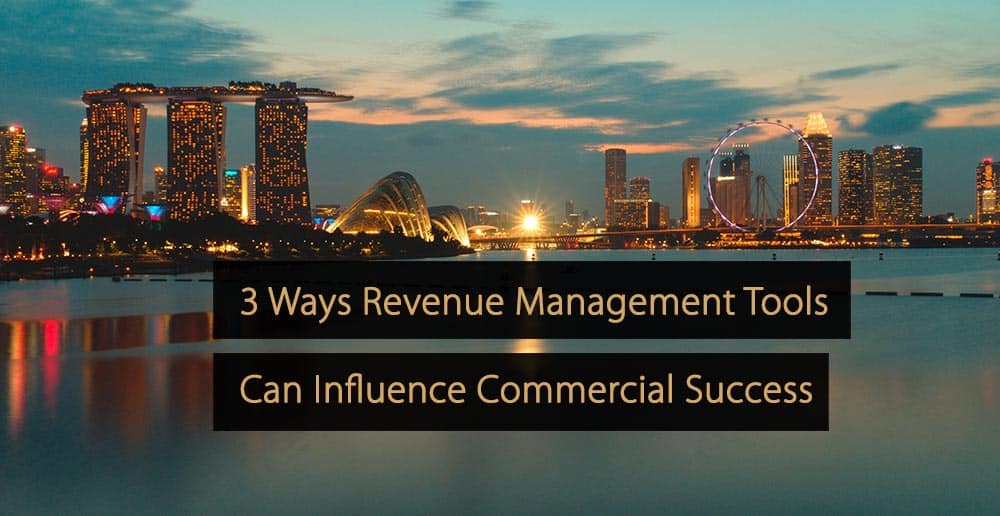Question for Our Revenue Management Expert Panel:
What are the most beneficial use cases and practical applications of AI in hotel revenue management? Where do you think the opportunities and pitfalls may lie? (Question by Alenka McMahon)
Industry Expert Panel
Our Industry Expert Panel exists out of professionals within the hospitality & travel Industry. They have comprehensive and detailed knowledge, experience in practice or management and are forward-thinking. They are answering questions about the state of the industry. They share their insights on topics like revenue management, marketing, operations, technology and discuss the latest trends.
Our Revenue Management Expert Panel
- Alenka McMahon – Managing Director, Hotel Revenue Services Limited
- Tanya Hadwick – Group Revenue & Yield Leader, SunSwept Resorts
- Diego Fernández Pérez De Ponga – Director of Revenue Management, Palladium Hotel Group
- Massimiliano Terzulli – Revenue Management Consultant, Franco Grasso Revenue Team
- Mariska van Heemskerk – Owner, Revenue Management Works
- Damiano Zennaro – Founder, DZ Consulting
- Fabian Bartnick – Founder, Infinito
- Heiko Rieder – Vice President Business Development, Hirmer Hospitality and Travel Charme Hotels
- Connor Vanderholm – CEO, Topline
- Ask Our Panel a Question
- Join Our Expert Panel
“AI in hospitality is very fragile. Hospitality is provided by human beings for human customers with potential errors in unpredictable situations. The product is not tangible and can be different based on the emotional experience of customers. Unless AI will be able to consider feelings, it will still be just an ‘info link chat’ resource for basic information and collecting data.”
“I guess we will all say leveraging algorithms and analysing historical data, market trends, competitor pricing, and customer behaviour in an effort to optimise pricing with more data points/insights. Moving on to anticipating guest needs and streamlining operations. As I read with interest the Revfine article on Artificial Intelligence in Hospitality I think they nailed the major points.”
“Artificial Intelligence (AI) has great potential for practical applications in hotel revenue management. One beneficial use case is AI-powered demand forecasting. By analysing historical data and market trends, AI algorithms can accurately predict future demand. This helps hotels optimise pricing and inventory decisions, maximising revenue.
Another valuable application is AI-driven dynamic pricing. By analysing real-time data, AI algorithms can adjust room rates based on demand fluctuations. This allows hotels to offer competitive prices while maintaining profitability, and optimising revenue.
AI can also be used for personalised marketing and guest targeting. By leveraging guest data, AI algorithms can deliver targeted campaigns and customized offers. This enhances the guest experience, increases loyalty, and drives revenue.
However, there are pitfalls to consider. Data quality and privacy are important concerns when implementing AI in revenue management. Hotels must ensure accurate data and comply with privacy regulations. Additionally, it’s important to maintain a balance between AI-driven automation and human decision-making to avoid over-reliance on algorithms.”
“The pandemic has shown that there are sometimes exceptional and unforeseen situations that require overriding AI decisions made based on historical or future data. But the pandemic is only the most obvious example. Just think of wars, political and social crises, natural disasters, and energy crises. Everything can change in a short time, days or weeks.
Paradoxically, humans in this case have a superior ability than artificial intelligence to read, decipher and react to a completely new situation, while the machine (learning) gives its best in the face of historical or future consolidated patterns repeated over time, and in this context it is certainly more efficient than humans. But AI works best only if there is a human behind it who can define the right sales, communication and distribution strategy and what data to consider so that it makes the best possible pricing decisions.
If the strategy is wrong, inevitably the machine’s decisions will also be wrong, and the outcome will be poor. For this reason, the combination of humans (strategy, creativity, interpretation of unexpected and unpredictable factors) and artificial intelligence (repetitiveness, speed, efficiency, and analysis of huge amounts of data) remains the best possible solution.”
“AI should be used as a backup for your locations but in my opinion, should never replace staff. It should be used to support your staff so they can focus on guest service. For example, enabling the reservations team to answer more personalised emails, letting housekeeping do something extra for the guests, and supporting the Sales, Marketing & Revenue teams so that they’re not wasting time on drafting reports but can focus on the output and strategise better.
For example, if we start using the “order your own food” apps in restaurants, it should make the experience of your guests better as staff can focus more on delivering service. However, if you use it to cut out more staff than you should, you will lose out on revenue opportunities.”
“Today AI is overall… how would you be able to optimise revenue based on (historical and future) inventory availability, OTB, pick-up and lead time compared to Same Time Last Year, LOS by room type, by market segmentation, by days of week etc., without technology? Most opportunities lie in pricing and forecasting – however, the strategic input comes from us. How would a computer decide to re-evaluate market segmentation, take a different commercial route, build new suites at the cost of standard rooms, anticipate events that computers cannot see, or create the synergy between sales, marketing and distribution?”
“AI should only have one place: MAKING YOU A BETTER YOU! For me, the future of AI is not about replacing human beings with artificial intelligence or robots, but about enhancing human potential in the optimisation cycle. The goal is to create a symbiosis and an individual, capable of unlocking their full potential to create a better revenue performance for the businesses they work for and better lives and careers for themselves.”
“The most significant opportunities for AI in hotel revenue management lie in its ability to optimise pricing through the analysis of real-time market data, demand patterns, competitive rates, and historical booking trends to improve demand forecasting. Furthermore, it enhances the guest experience through personalisation which can significantly improve ROI from performance marketing spent.
However, hotels should approach AI with careful planning and continuous monitoring to avoid potential pitfalls and ensure that AI-driven decisions align with their strategic goals and ethical considerations.”
“AI can certainly be used to improve strategy decision-making and improve BI reporting applications. Backend tech can be enhanced by implementing machine learning and AI, but I would be cautious to allow it to be used guest-facing. Whether they are cognizant of it or not, people still crave person-to-person interaction, and this should not be replaced with an algorithm.”
Ask a Question & Join Our Expert Panel
Would you like a question to be answered by our Industry Expert Panel? Or would you like to join our community of experts and share your experience, insights, and knowledge with fellow industry professionals? Via the buttons below you can submit a question or submit a request to become part of our expert panel.
More Tips to Grow Your Business
Revfine.com is the leading knowledge platform for the hospitality and travel industry. Professionals use our insights, strategies, and actionable tips to get inspired, optimize revenue, innovate processes, and improve customer experience.Explore expert advice on management, marketing, revenue management, operations, software, and technology in our dedicated Hotel, Hospitality, and Travel & Tourism categories.
















Leave A Comment